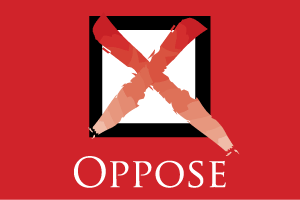Action Alert
|
 A California Chamber of Commerce-opposed bill that would deny the public critical economic data on the effects of proposed Cal/OSHA regulations is one step closer to the Governor’s desk after moving out of the Assembly Appropriations Committee yesterday and is now headed to the Assembly floor.
A California Chamber of Commerce-opposed bill that would deny the public critical economic data on the effects of proposed Cal/OSHA regulations is one step closer to the Governor’s desk after moving out of the Assembly Appropriations Committee yesterday and is now headed to the Assembly floor.
SB 410 Leyva (D-Chino) specifically exempts California Division of Occupational Safety and Health (Cal/OSHA) regulations from the Standardized Regulatory Impact Analysis (SRIA) process, which provides thorough economic analysis and Department of Finance oversight for proposed regulations. The process currently applies to all regulations with a financial impact of more than $50 million for virtually all state agencies.
This analysis process is critical in estimating the cost of proposed regulations and their impact on job loss or creation. During the COVID-19 pandemic, Cal/OSHA issued workplace emergency temporary standards that cost employers significant amounts of time and money for things like upgrading and retrofitting workspaces; exclusion pay; and purchasing of tests and other protective equipment. SB 410 would allow this same agency to adopt more regulations that could impose financial burdens on employers, without having an economic analysis conducted beforehand.
What Is SRIA?
The Standardized Regulatory Impact Analysis (SRIA) process was created by the Legislature in 2011 with SB 617 (Calderon). The bill was supported by the CalChamber and was passed by vast majorities in both houses with the goal of ensuring that new regulations of a sufficiently large size (economic impact exceeding $50 million) should be thoroughly analyzed and that the Department of Finance (DOF) should review that estimated economic impact to confirm the methodology used in these estimates were suitable.
The process requires consideration of the creation or elimination of jobs within the state and the creation of new or existing businesses in the state, as well as the benefits of the regulation to the health and welfare or California residents, worker safety, and the state’s environment. Substantively, SRIA provides the most thorough analysis of any performed by the state, including weighing whether there are more cost-effective solutions, as well as looking at potential alternative actions by other agencies. The DOF is required to review the final SRIA analysis to check its underlying assumptions and conclusions.
Notably, SRIA analysis is not triggered by most regulations. According to the Legislative Analyst’s Office, of approximately 600 regulations adopted annually, 10 or so trigger SRIA analysis in a given year. As a result of the SRIA process, improved economic analyses of the most major regulations has been available to members of the public and policy makers over the last decade.
SRIA analysis also exempts emergency regulations—meaning those can pass more quickly, but also can present unexpected costs. The COVID-19 emergency regulation is a perfect example: it was adopted quickly, but led to some difficult compliance issues as a result of this rush.
SB 410 exempts just one agency—Cal/OSHA—from the SRIA requirements that would continue to be applied to all other state agencies. In a letter to the Legislature, the CalChamber pointed out that there is no logical justification for this specific exclusion; Cal/OSHA’s regulations are no different than those of the California Air Resources Board, the Department of Transportation, or any other agency.
SB 410 would deny California’s policy makers and the public important data for one of the most critical agencies in the state, Cal/OSHA.
Lack of Analysis Creates Costs
The Legislative Analyst’s Office (LAO) reviewed the SRIA process in 2017, acknowledged its value and urged that the process be strengthened, not removed. The LAO stated, “[SRIA has] increased the consistency of agencies’ analyses and, as a result of the additional DOF oversight, agency analyses of proposed rules are often more robust and of higher quality.”
Similarly, the DOF acknowledged the value of SRIA analysis in identifying cross-jurisdictional issues. In response to the prior iteration of SB 410 (SB 772 (Leyva), 2017), the DOF stated: “We know that major regulations implemented by one department may have unknown side effects on other state agencies or result in reimbursable state mandates. The SRIA process provides an opportunity to analyze these side effects…”
Regarding whether removal of SRIA analysis for Cal/OSHA regulations was preferable, DOF commented, “…but exempting certain major regulations from this analysis risks creating costs on other state agencies or reimbursable state mandates.”
As the COVID-19 pandemic has shown, science and analysis take time, and policy actions must be shaped by that knowledge, the CalChamber stated. The SRIA process ensures that high-quality, thorough analysis is available for California’s regulations—and its removal would only harm public policy outcomes at Cal/OSHA.
Staff Contact: Robert Moutrie


